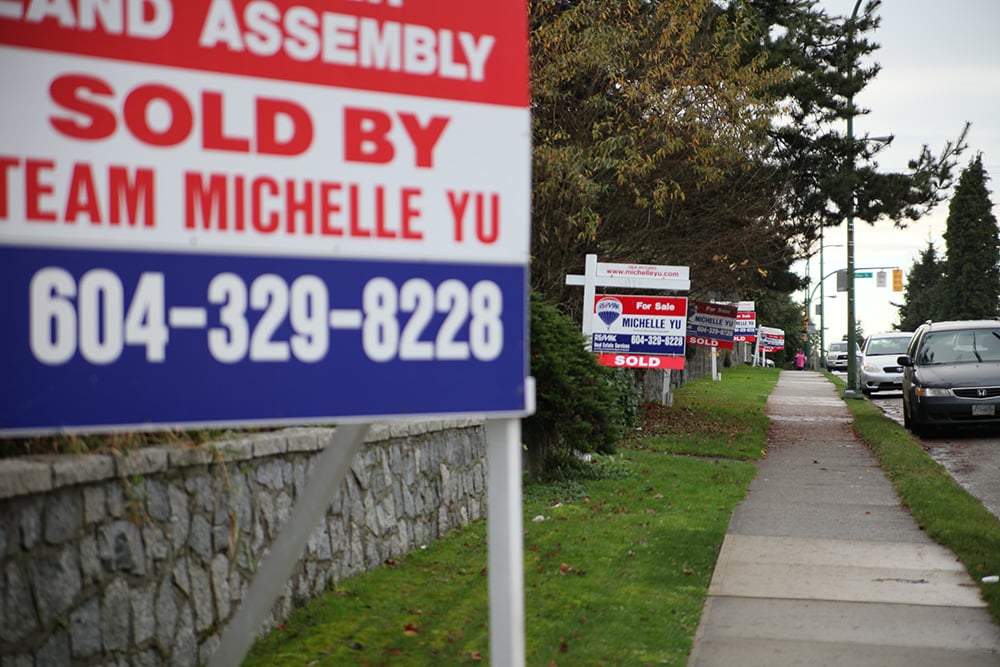The organization representing municipal governments in British Columbia is raising “significant concerns” about parts of the housing plan NDP leadership hopeful David Eby announced last week.
The Union of BC Municipalities applauds other aspects and wants to discuss others more.
“The scope of the proposals that MLA Eby has advanced are broad and warrant local government attention,” said the UBCM’s preliminary analysis for its roughly 200 members.
The plan could have “near-term implications for local governments,” the UBCM warned, even though it noted the plan isn’t yet official government policy and the details available on each proposal are limited.
Eby released his housing plan Sept. 28. It was the first major policy announcement in his campaign to become NDP leader and the next premier of the province. Before resigning from cabinet to seek the leadership he served as both the attorney general and the minister responsible for housing.
The wide-ranging platform document included everything from a crackdown on speculative activity to supports for builders of affordable housing like non-profits. It also included plans that would make single-family neighbourhoods denser, with or without the support of local governments.
The UBCM’s analysis said it had “significant concerns” about “legislation on housing targets and forcing municipalities to act.”
Eby has been quoted saying he hopes that legislation can be introduced in the fall session of the legislature that started this week.
Under the plan municipalities will have “housing needs plans” that require them to deliver a minimum number of additional units, the UBCM noted.
The province will intervene in municipalities that fail to meet their targets and reward those that exceed them with more support for community amenities.
“No details are provided on the proposed housing needs plans and how these would be tied to minimum standards for housing delivery,” the UBCM said in its analysis.
While tying funding to housing targets could be helpful, it said, the threat of provincial intervention raises questions about how targets will be defined, how they will take into account the long time it takes to build housing once a municipality has approved it, and whether the province would reduce the delays caused by its own approval process.
It also asked “How would they relate to current regional planning and growth management plans, including efforts to limit urban sprawl and address climate adaptation and mitigation?”
The UBCM also identified half a dozen ideas in Eby’s plan that aligned with policies its members support.
It liked the $500 million pledged to help non-profits buy rental buildings, the added protections for existing rental housing, the continued focus on complex care housing and the increased supports for people living in supportive housing.
The UBCM also approved of the proposed flipping tax, proposals to deal with “frauds, cheats and criminals” and a proposal to improve information sharing between short-term rental companies like Airbnb and local governments.
“Many other elements of the plan have the potential to create large amounts of affordable housing supply,” the UBCM’s analysis said, “but would also require further consultation with UBCM and local governments to address implications for local democracy and accountability and also to minimize potential unintended consequences.”
They included a BC Builds initiative that would bring “a substantial expansion of the government’s role in facilitating the delivery of middle-class homes,” a plan to “pre-approve” builders in major urban centres to replace existing single-family homes with up to three units on the same footprint, and the proposal to make secondary suites legal throughout the province.
“Such initiatives inherently involve a complex series of trade-offs and if poorly designed could lead to wide-ranging unintended consequences,” it said.
“Considerable engagement with local governments would be necessary to ensure that densification is done in a way that sees the development of complete, resilient communities with necessary infrastructure while minimizing speculative land lift.”
The UBCM said it would “advocate for early and adequate opportunities” for local governments to be involved in discussions as any of the proposals move forward.
The NDP plans to announce its new leader on Dec. 3. The only other candidate seeking the job is climate activist Anjali Appadurai. ![]()
Read more: BC Politics, Housing, Urban Planning
















Tyee Commenting Guidelines
Comments that violate guidelines risk being deleted, and violations may result in a temporary or permanent user ban. Maintain the spirit of good conversation to stay in the discussion.
*Please note The Tyee is not a forum for spreading misinformation about COVID-19, denying its existence or minimizing its risk to public health.
Do:
Do not: